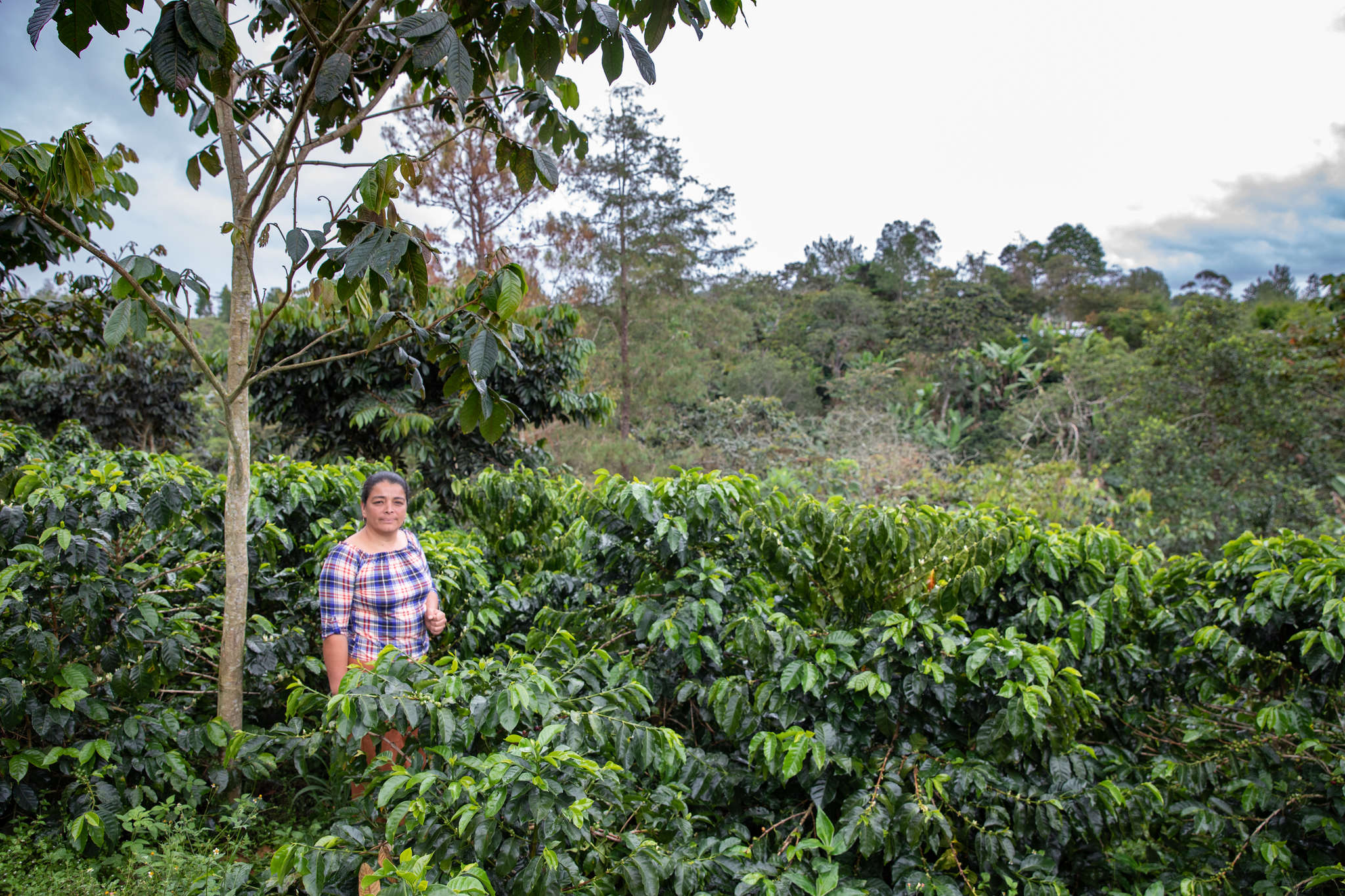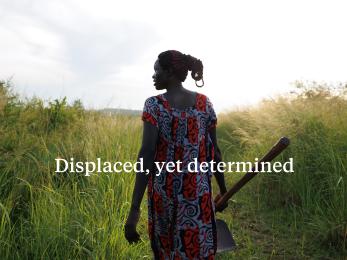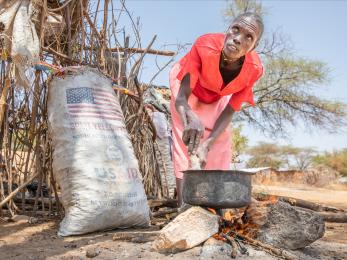Promoting peace: Land titles reduce conflicts over natural resources
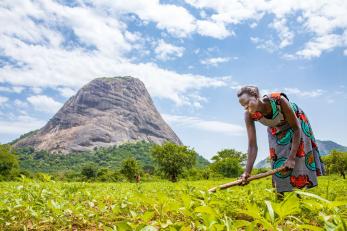
Gertrude works beneath the bright Ugandan sun, weeding her lush garden of simsim, pigeon peas, and ground nuts. These crops are not only a source of income, but also a food and nutrition safeguard for herself and her children. While Gertrude is proud to live on and cultivate the land that rightfully belongs to her, gaining a title to her land was complicated—especially since access to land titles is made more difficult for women due to patriarchal bottlenecks around land ownership.
Gertrude has called Karamoja, Uganda home for over 20 years. The region has a population of roughly one million people who rely heavily on agriculture for survival. Raising livestock and growing crops is a way of life for the people living in the area. But underlying the robust green landscape and sweeping mountains are decades of conflict over land access which is further exacerbated by frequent droughts, cattle rustling, and land degradation.
From cattle raids to land grabbing, violent disputes over natural resources have resulted in the loss of lives, money, and access to food for many families. The root of the issue stems from a lack of clear boundaries for land ownership, which in turn leaves vulnerable groups such as women, orphans, and people with disabilities at risk of having their land stolen. Gertrude knows this experience firsthand.
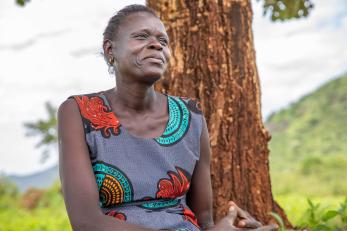
After Gertrude’s father-in-law passed away, his land was taken and divided out to several people without her permission. During this time, Gertrude recalls struggling to feed her children. She dealt with threats of violence when she attempted to take back the plot of land that was rightfully hers. Much of the pushback was due to cultural beliefs about women having no right to land. Women were allowed to cultivate the land, but the land belonged to either their parents or the family they married into. Despite those setbacks, she did not give up on the possibility of securing the title to her land.
After attending a Mercy Corps workshop and training about the land titling process, Gertrude applied for a land title. It only took a few weeks to receive her land title after she submitted her application to the land committee. Having a land title brought Gertrude a sense of hope and security.
“What is making me proud is through the trainings, I got [to learn] about the land rights,” Gertrude said. “That is what is making me enjoy this land most because I know right now my right as a woman on the land and I am enjoying it.”
Inspired by her own success, Gertrude became a mediator as part of a local Mercy Corps peace and prosperity programme. This programme unifies communities by facilitating dialogue sessions, developing resource sharing agreements between communities, strengthening governance structures, and educating the public about land rights. Since 2018, Mercy Corps has held 30 workshops providing information about land rights and laws, reaching more than 3,000 participants to understand and mitigate conflict related to land ownership. The programme supports peace committees, facilitates work with land officials, supports women’s councils, and works with community members to help resolve disputes over natural resources.
[My children] will be the next to benefit from this land
Gertrude, who obtained a title to the land where she lives and grows food.
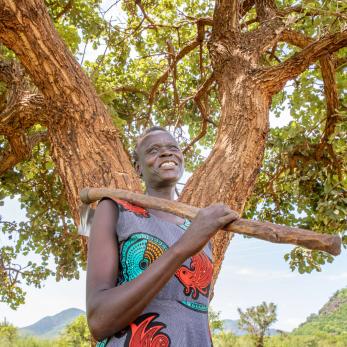
As part of her training, Gertrude learned how to handle community disputes without resorting to violent encounters. She took what she learned and applied it as a mediator in her own community—with a focus on addressing gender-based violence and discrimination. She educated community members about equity in land ownership.
Women are often violently forced off their land. This was a common issue she observed among widows whose land was being stolen, sometimes without their knowledge, leaving them and their children without income or food. It was important to Gertrude that the community understood everyone—including women—has a right to land ownership.
“Land should be owned by everyone whether you are a girl or a boy, or man or a woman,” she said. “Men have realised women have equal rights on land and there is a big change.”
Gertrude believes the training and education will encourage people to acquire land titles and lead to less conflict overall. She and other mediators have already noticed a decrease in instances of violence over land disputes.
What brings her the most solace in her personal life is knowing that her children will not have to withstand the same obstacles or abuse that she did prior to obtaining a land title. “[My children] will be the next to benefit from this land,” said Gertrude.“They will not struggle again. It will not disturb their minds. They will not have conflict again with other people like the way I had.”

